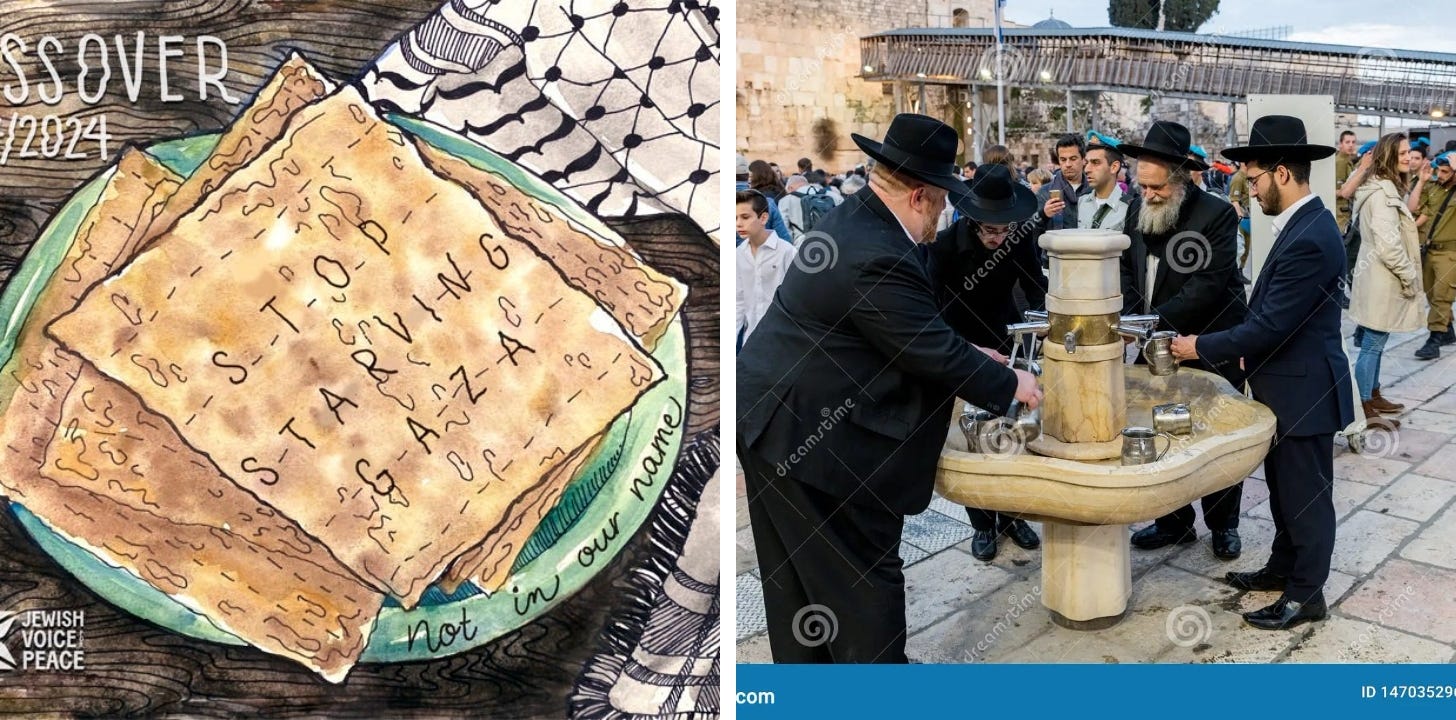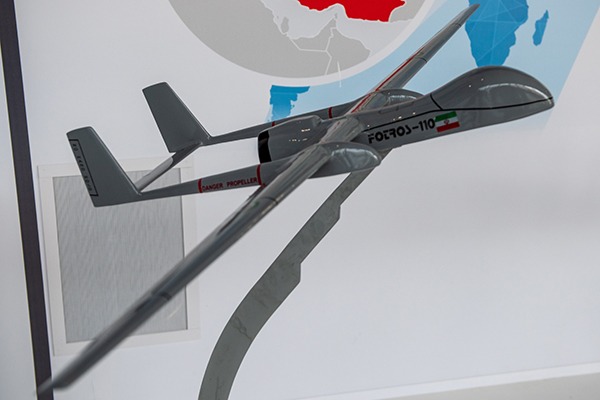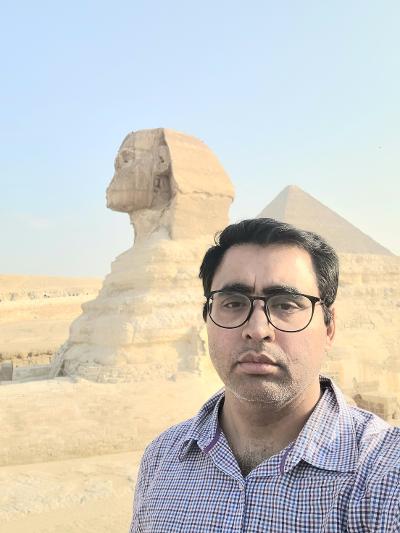Mass Exodus from their homes, made refugees and ethnically Cleansed. Why are Palestinians so different from Israelites of Prophet Moses?
Not so bad for non-Muslims in Morocco. By Mohsine El Ahmadi

Many people wonder what relevance shari'a–Islamic principles– has in the modern world. In Morocco it has influenced national laws, especially the civil code and family law, primarily in a positive sense. Coupled with the country’s tradition of tolerance and openness, this has provided the Moroccan government with a foundation for protecting the rights of religious minorities within its borders.
King Mohammed VI, who ascended to the throne in 1999, made a strategic decision to introduce democratic reforms and restructure the legal system so that Morocco can move toward becoming an inclusive, multi-religious society, one which better adheres to the Universal Declaration of Human Rights (UDHR), which is partly dedicated to progress on religious freedom.
This decision resulted in the adoption of an official agenda known as the “Reformation of [the] Religious Field” in 2004 by the King, who then delegated carrying out this reform to the Minister of Endowment and Islamic Affairs, Ahmed Tawfik.
The goal of this new policy was expressed in the King’s address to the nation on 31 July 2009 in which he distinguished between Islam and politics.
An exception is made, however, for his own role as both the head of state and Commander of Faithful, a religious title inherited from the earlier days of Islam and which makes the Moroccan king the eminent representative for both Muslims and religious minorities living in Morocco. Accordingly, Articles 6 and 19 of the Constitution state that the King’s role is to protect the Muslim identity of the Moroccan people, while respecting the rights of religious minorities.
Morocco has a long tradition of religious freedom, evident by its longstanding Jewish community. Today, this community exists alongside a nascent Christian one. Continuing his efforts to affirm the value of a pluralistic society, King Mohammed VI encouraged those of all faiths in Morocco to draw on this tradition at a September 2009 conference called “Seeking Enlightened Islam: the Golden Age of Monotheism”.
Precise information on the religious makeup of Morocco is difficult to find, but according to the Pew Forum on Religion and Public Life, Muslims represent nearly 99 per cent of the population. Estimates put Christians at under one per cent and Jews at about 0.2 per cent. Most of the Christians are Europeans or Sub-Saharan African students working and living in big cities like Casablanca, Rabat and Marrakesh. Analysts estimate that about 5,000 Moroccans have converted to Christianity in the past five years, due to evangelical Christians’ increased proselytising and their outreach to the young and the poor.
However, there is no official Moroccan data on this issue since the government does not gather data on religious affiliation in its census.
In accordance with Article 18 of the UDHR, which states that everyone has the right to publicly practice his or her religion, Morocco has 10 functional synagogues and 16 churches in which Jews and Christians can publicly practice their faith without any interference. Hindus and Buddhists also have holy shrines in Rabat and Casablanca.
The law protects these religious spaces from violence. Most importantly, laws allowing freedom of expression and assembly, as well as the ability to worship both privately and publicly, are clearly stated in the Constitution and the Penal Code, both of which were written shortly after Morocco's independence in 1956.
Morocco’s approximately 3,000 Shi’ites generally assemble freely, and have established organisations like the Organisation of Moroccan Shi’ites, Attawassoul Association in the city of al Housseima, Al Inbiaat Association in Tangier, and Al Ghadir Association in Meknes. Nor have they experienced any problems with holding their rituals publicly.
And for many years, Jews have been practicing their faith safely in synagogues and during regular pilgrimages to local Jewish saints' shrines all over Morocco. The Christian community has established churches, schools, hospitals and orphanages without interference from the government.
The Catholic Archbishop of Rabat, Vincent Landel, says: "Muslims and Christians coexist and live in peace and fraternity.” Although active proselytising to Muslims is illegal–a law based on Islamic principles–Archbishop Landel notes that Christians in the country can practice their faith freely. Furthermore, interfaith marriage is allowed, though only for Muslim men: Muslim women’s future spouses are expected to convert to Islam before marriage.
The government tries to maintain and promote positive attitudes regarding religious freedom. It is this peaceful co-existence between religious communities that Morocco hopes to perpetuate in order to be a positive example to the rest of the Muslim world.
###
* Dr. Mohsine El Ahmadi is Professor of Sociology at the Cadi Ayyad University of Marrakech and currently a Visiting Scholar at Prince AlWaleed Bin Talal for Muslim-Christian Understanding at Georgetown University. This article is part of a series on Islamic law and non-Muslim minorities written for the Common Ground News Service (CGNews).
King Mohammed VI, who ascended to the throne in 1999, made a strategic decision to introduce democratic reforms and restructure the legal system so that Morocco can move toward becoming an inclusive, multi-religious society, one which better adheres to the Universal Declaration of Human Rights (UDHR), which is partly dedicated to progress on religious freedom.
This decision resulted in the adoption of an official agenda known as the “Reformation of [the] Religious Field” in 2004 by the King, who then delegated carrying out this reform to the Minister of Endowment and Islamic Affairs, Ahmed Tawfik.
The goal of this new policy was expressed in the King’s address to the nation on 31 July 2009 in which he distinguished between Islam and politics.
An exception is made, however, for his own role as both the head of state and Commander of Faithful, a religious title inherited from the earlier days of Islam and which makes the Moroccan king the eminent representative for both Muslims and religious minorities living in Morocco. Accordingly, Articles 6 and 19 of the Constitution state that the King’s role is to protect the Muslim identity of the Moroccan people, while respecting the rights of religious minorities.
Morocco has a long tradition of religious freedom, evident by its longstanding Jewish community. Today, this community exists alongside a nascent Christian one. Continuing his efforts to affirm the value of a pluralistic society, King Mohammed VI encouraged those of all faiths in Morocco to draw on this tradition at a September 2009 conference called “Seeking Enlightened Islam: the Golden Age of Monotheism”.
Precise information on the religious makeup of Morocco is difficult to find, but according to the Pew Forum on Religion and Public Life, Muslims represent nearly 99 per cent of the population. Estimates put Christians at under one per cent and Jews at about 0.2 per cent. Most of the Christians are Europeans or Sub-Saharan African students working and living in big cities like Casablanca, Rabat and Marrakesh. Analysts estimate that about 5,000 Moroccans have converted to Christianity in the past five years, due to evangelical Christians’ increased proselytising and their outreach to the young and the poor.
However, there is no official Moroccan data on this issue since the government does not gather data on religious affiliation in its census.
In accordance with Article 18 of the UDHR, which states that everyone has the right to publicly practice his or her religion, Morocco has 10 functional synagogues and 16 churches in which Jews and Christians can publicly practice their faith without any interference. Hindus and Buddhists also have holy shrines in Rabat and Casablanca.
The law protects these religious spaces from violence. Most importantly, laws allowing freedom of expression and assembly, as well as the ability to worship both privately and publicly, are clearly stated in the Constitution and the Penal Code, both of which were written shortly after Morocco's independence in 1956.
Morocco’s approximately 3,000 Shi’ites generally assemble freely, and have established organisations like the Organisation of Moroccan Shi’ites, Attawassoul Association in the city of al Housseima, Al Inbiaat Association in Tangier, and Al Ghadir Association in Meknes. Nor have they experienced any problems with holding their rituals publicly.
And for many years, Jews have been practicing their faith safely in synagogues and during regular pilgrimages to local Jewish saints' shrines all over Morocco. The Christian community has established churches, schools, hospitals and orphanages without interference from the government.
The Catholic Archbishop of Rabat, Vincent Landel, says: "Muslims and Christians coexist and live in peace and fraternity.” Although active proselytising to Muslims is illegal–a law based on Islamic principles–Archbishop Landel notes that Christians in the country can practice their faith freely. Furthermore, interfaith marriage is allowed, though only for Muslim men: Muslim women’s future spouses are expected to convert to Islam before marriage.
The government tries to maintain and promote positive attitudes regarding religious freedom. It is this peaceful co-existence between religious communities that Morocco hopes to perpetuate in order to be a positive example to the rest of the Muslim world.
###
* Dr. Mohsine El Ahmadi is Professor of Sociology at the Cadi Ayyad University of Marrakech and currently a Visiting Scholar at Prince AlWaleed Bin Talal for Muslim-Christian Understanding at Georgetown University. This article is part of a series on Islamic law and non-Muslim minorities written for the Common Ground News Service (CGNews).
You May Also Like
In this special Iran-Israel War update, we cover the latest developments in the escalating conflict between the two Middle Eastern powers.Iran'
Brigadier General Mohammad Reza Zahedi, a senior commander in the elite Quds Force of Iran’s Revolutionary Guard Corps (IRGC), and his deputy

"Trial of Pakistani Christian Nation" By Nazir S Bhatti
On demand of our readers, I have decided to release E-Book version of "Trial of Pakistani Christian Nation" on website of PCP which can also be viewed on website of Pakistan Christian Congress www.pakistanchristiancongress.org . You can read chapter wise by clicking tab on left handside of PDF format of E-Book.







